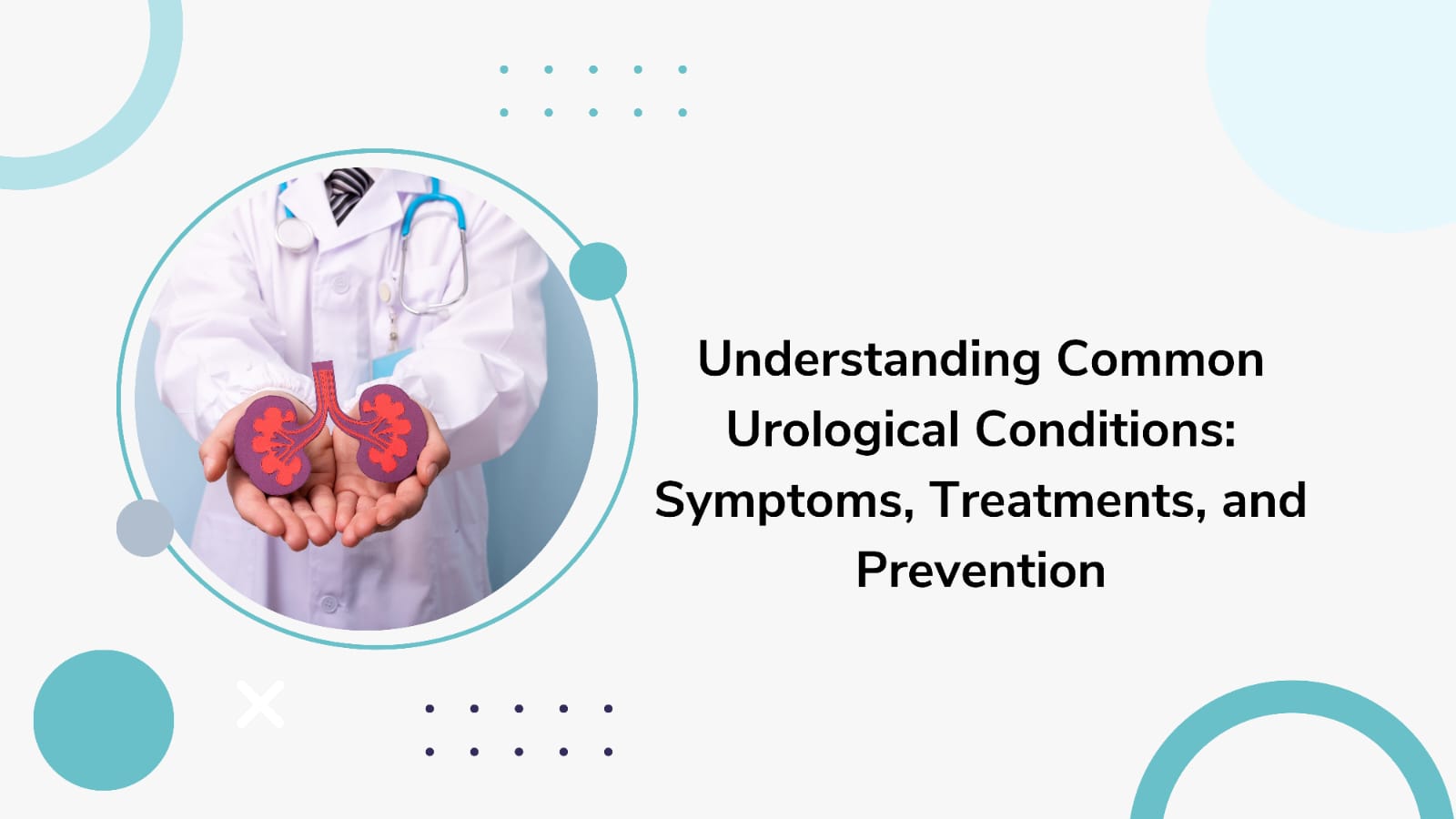Urological conditions encompass a wide range of disorders affecting the urinary system, which includes the kidneys, ureters, bladder, and urethra. From urinary tract infections to kidney stones, understanding these conditions is crucial for maintaining urological health. In this blog, we delve into some of the most common urological conditions, their symptoms, available treatments, and preventive measures.
Urinary Tract Infections (UTIs)
Urinary tract infections (UTIs) are among the most prevalent urological conditions, especially in women. They occur when bacteria enter the urinary tract, leading to inflammation and discomfort. Common symptoms of UTIs include:
- Frequent urge to urinate
- Pain or burning sensation during urination
- Cloudy or foul-smelling urine
- Pelvic pain or discomfort
Treatment for UTIs typically involves antibiotics to clear the infection. Drinking plenty of water and maintaining good hygiene practices can help prevent UTIs. Urinating after sexual intercourse and avoiding holding urine for extended periods also reduce the risk of UTIs.
Kidney Stones
Kidney stones are solid mineral deposits that form in the kidneys and can cause severe pain when they pass through the urinary tract. Symptoms of kidney stones include:
- Intense pain in the back, side, or lower abdomen
- Blood in the urine
- Nausea and vomiting
- Urinary urgency and frequency
Treatment options for kidney stones depend on their size and location. Small stones may pass naturally with increased fluid intake and pain management. Larger stones may require medical intervention, including extracorporeal shock wave lithotripsy (ESWL), ureteroscopy, or surgical removal.
Benign Prostatic Hyperplasia (BPH)
Benign prostatic hyperplasia (BPH) is a common condition in aging men characterized by the enlargement of the prostate gland. Symptoms of BPH include:
- Difficulty starting urination
- Weak urine stream
- Frequent urination, especially at night (nocturia)
- Feeling of incomplete bladder emptying
Treatment options for BPH range from lifestyle modifications and medications to minimally invasive procedures and surgery. Alpha-blockers and 5-alpha reductase inhibitors are commonly prescribed medications to manage BPH symptoms. In severe cases, transurethral resection of the prostate (TURP) or other surgical procedures may be necessary.
Urinary Incontinence
Urinary incontinence is a common urological condition characterized by the involuntary loss of urine. It can affect individuals of all ages and may result from various factors, including muscle weakness, nerve damage, and underlying medical conditions. Symptoms of urinary incontinence include:
- Leakage of urine during coughing, sneezing, or physical activity (stress incontinence)
- Sudden, intense urge to urinate followed by involuntary loss of urine (urge incontinence)
- Overflow of urine due to an inability to fully empty the bladder (overflow incontinence)
Treatment for urinary incontinence depends on its underlying cause and severity. It may include lifestyle modifications, pelvic floor exercises (Kegels), medications, medical devices (such as pessaries), and surgical procedures.
Prevention is Key
While some urological conditions may be unavoidable, adopting healthy lifestyle habits can significantly reduce the risk of developing them. Some preventive measures include:
- Drinking an adequate amount of water daily to maintain urinary tract health
- Practicing good hygiene, including regular handwashing and proper genital care
- Eating a balanced diet rich in fruits, vegetables, and whole grains to support overall health
- Avoiding smoking and excessive alcohol consumption, which can contribute to urological problems
- Seeking prompt medical attention for any urinary symptoms or concerns


